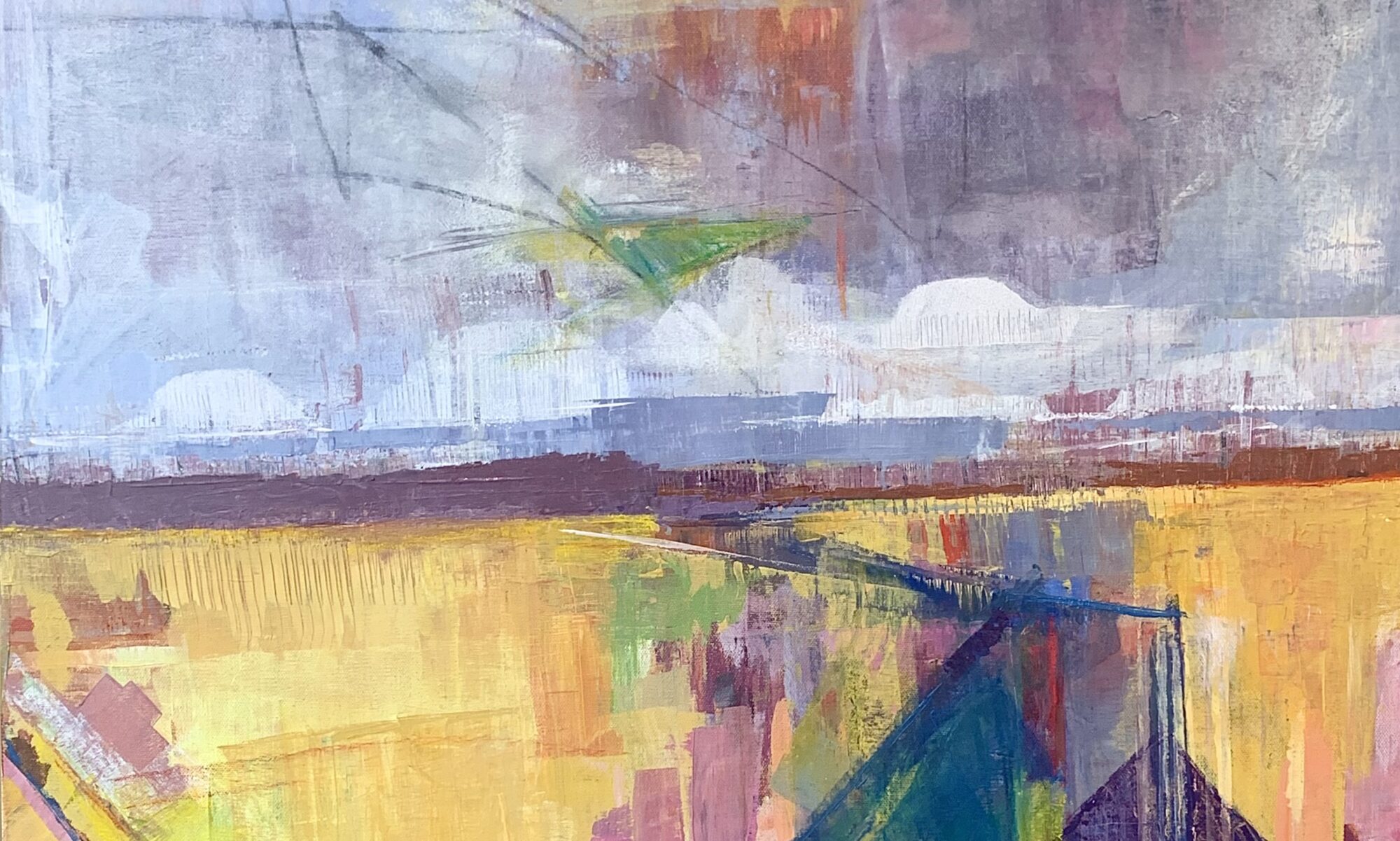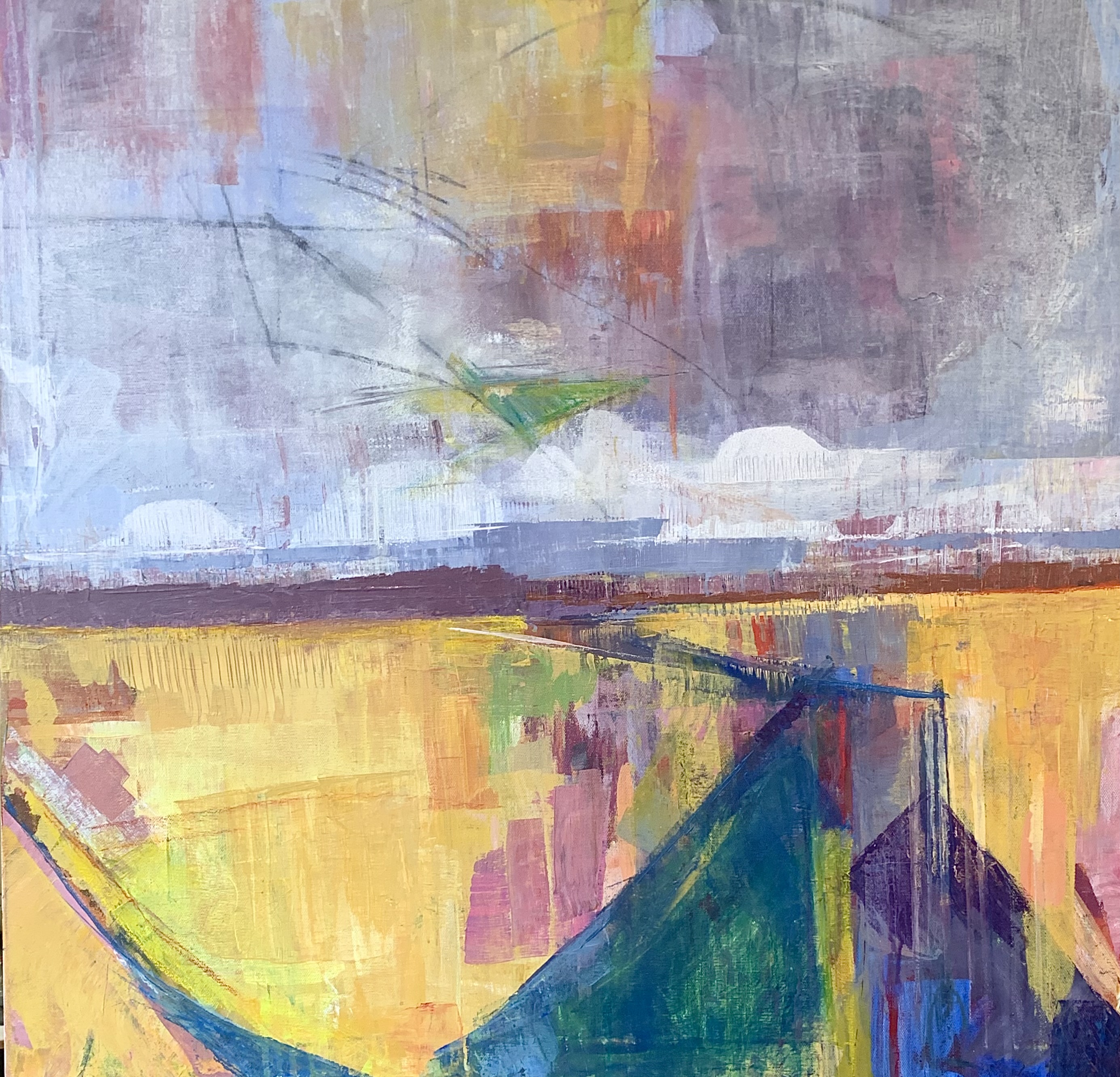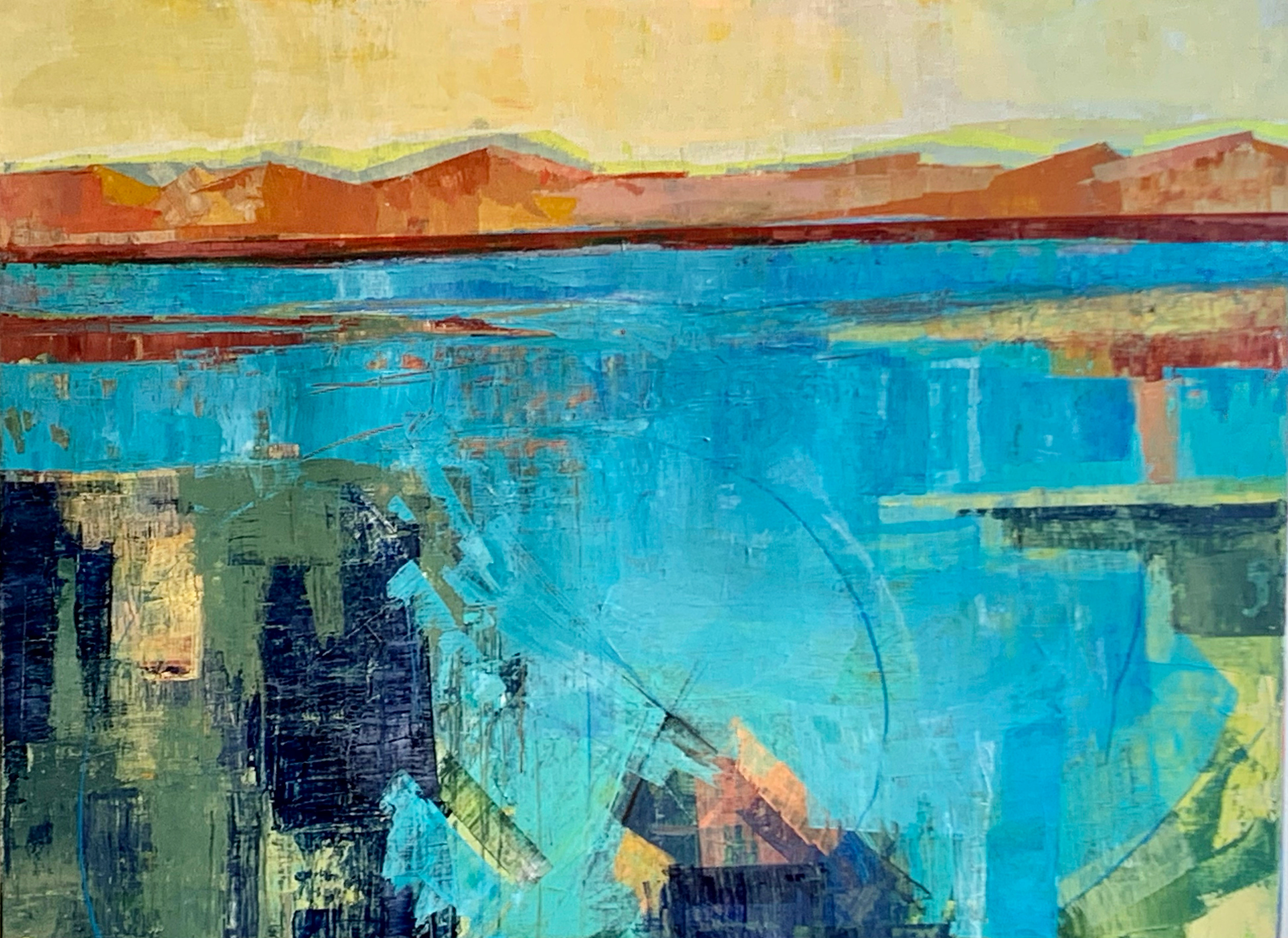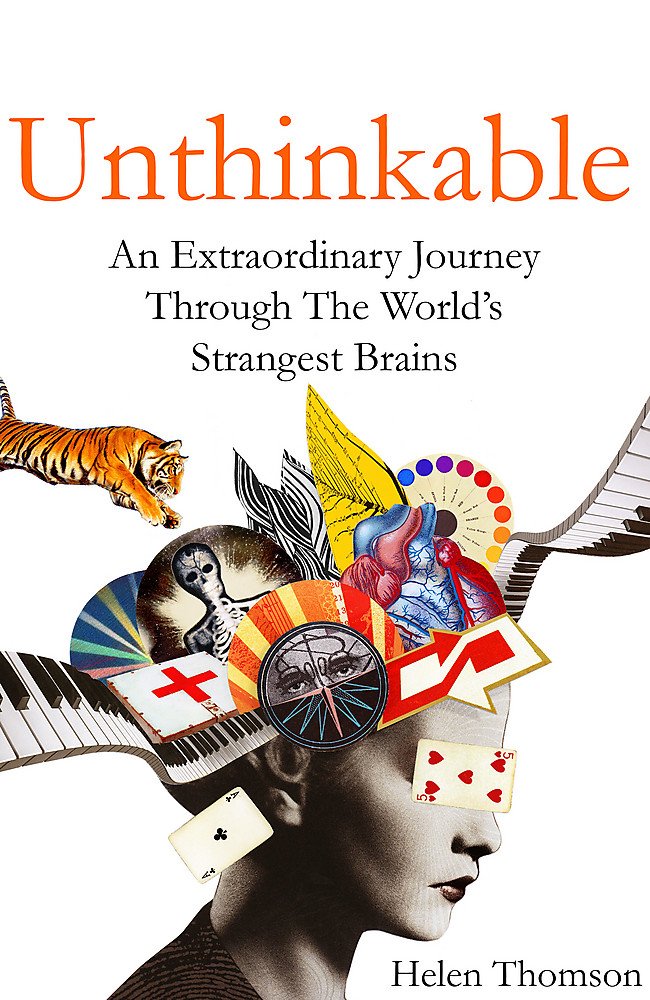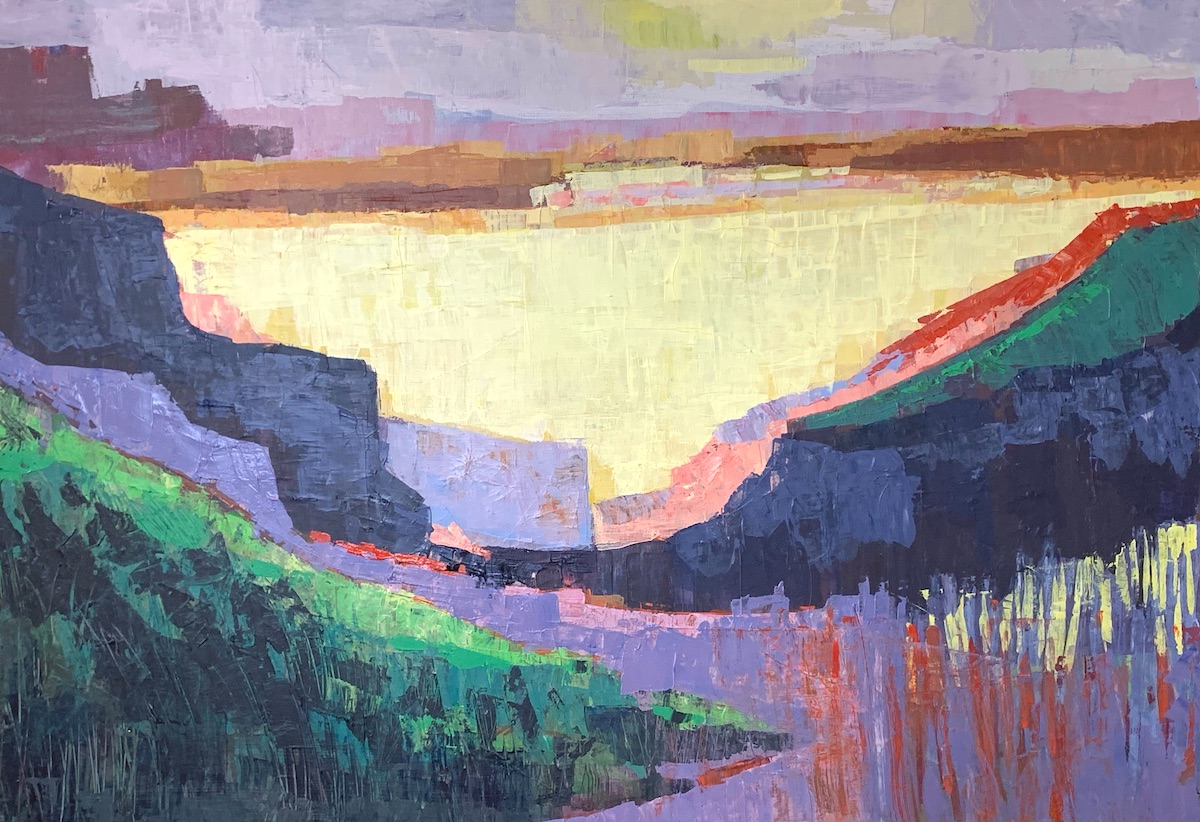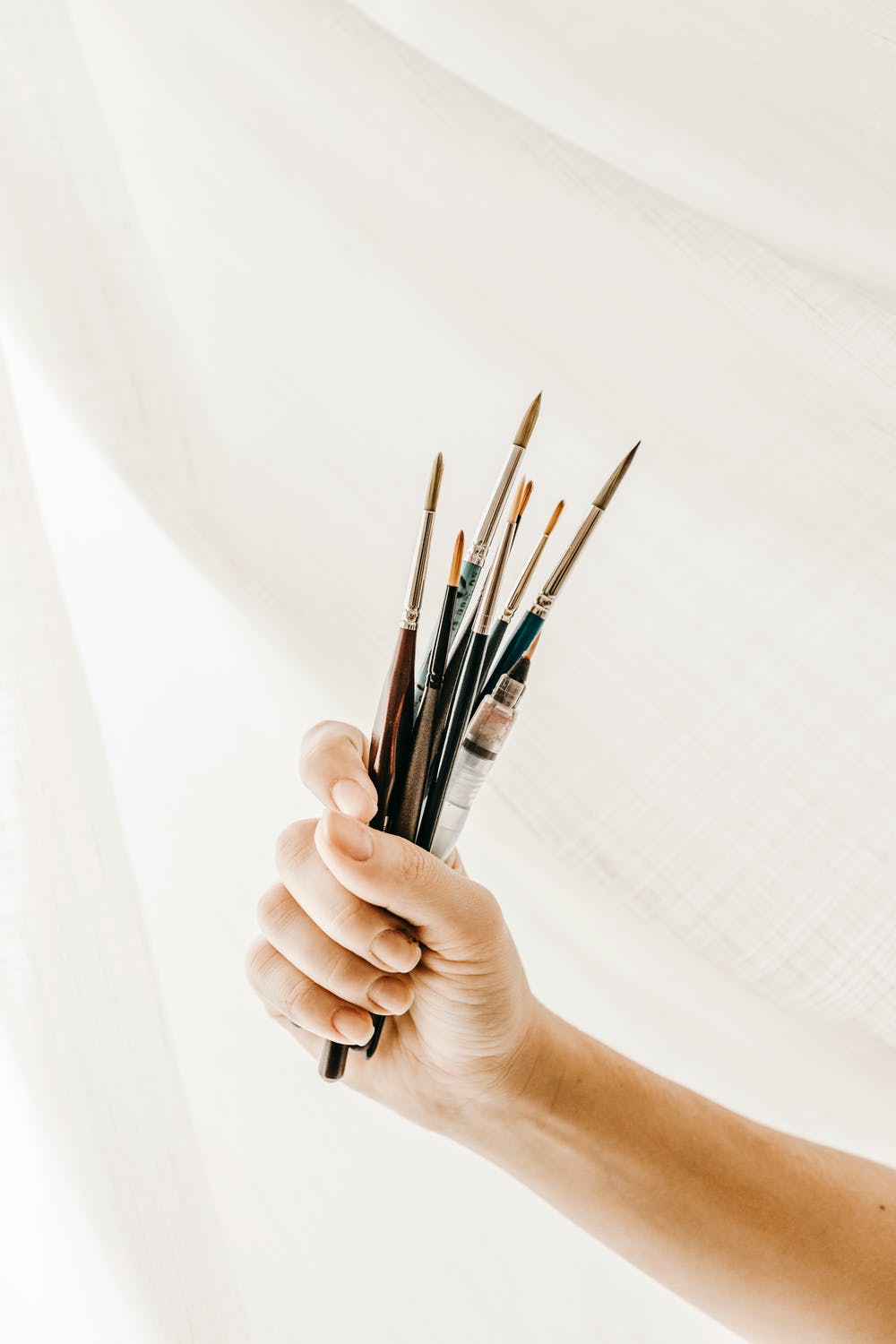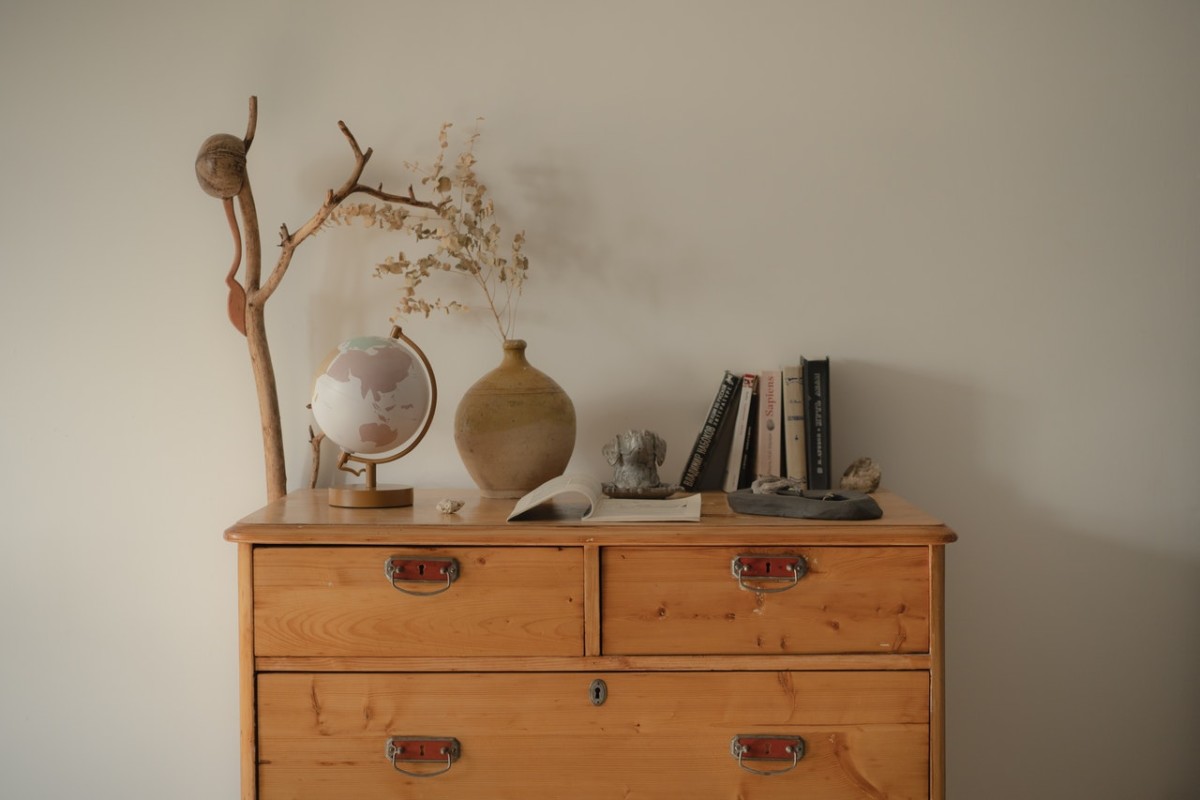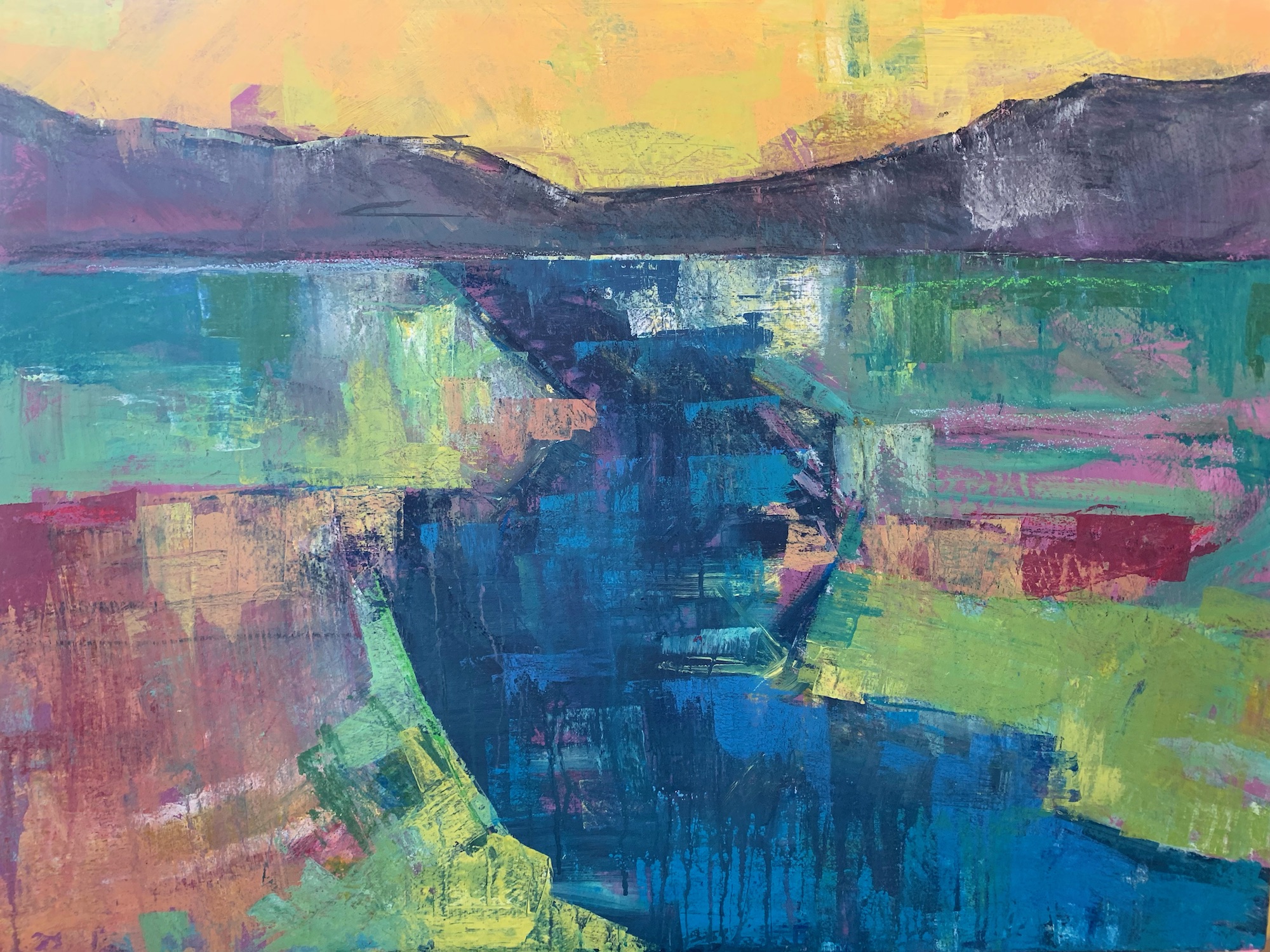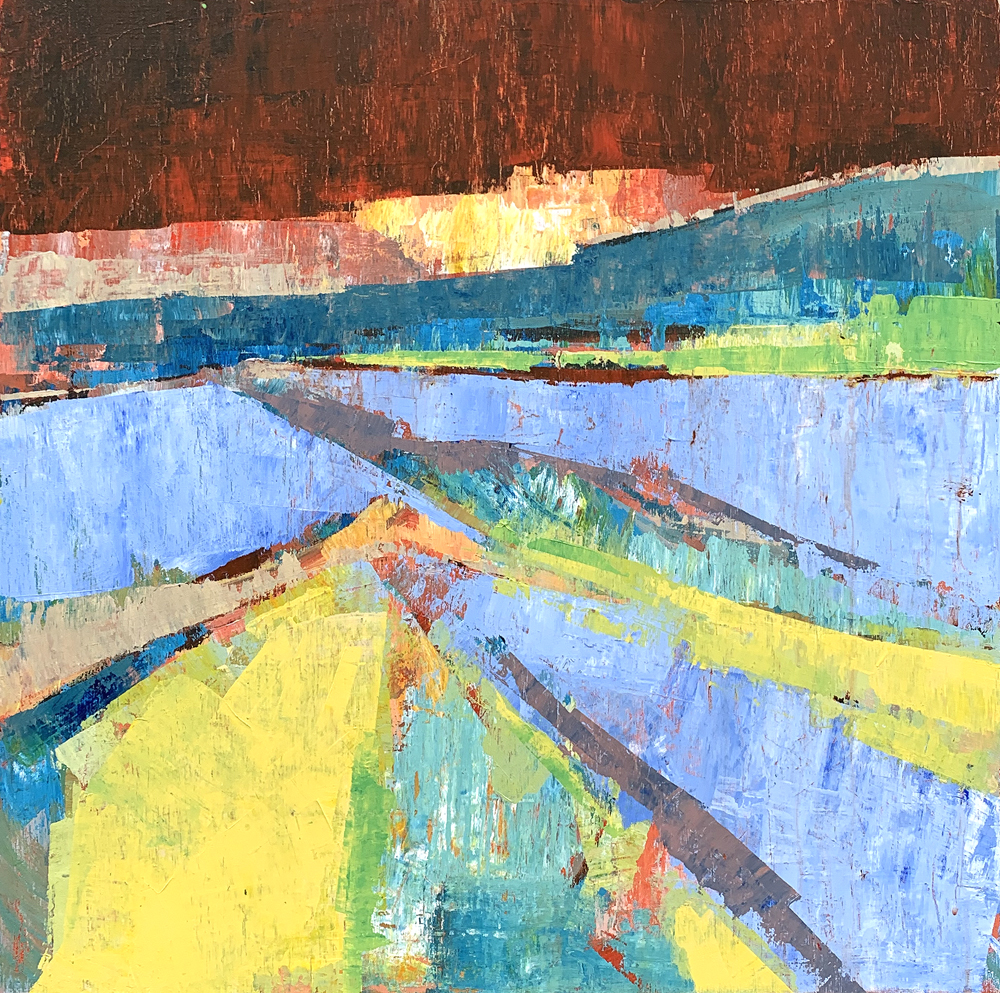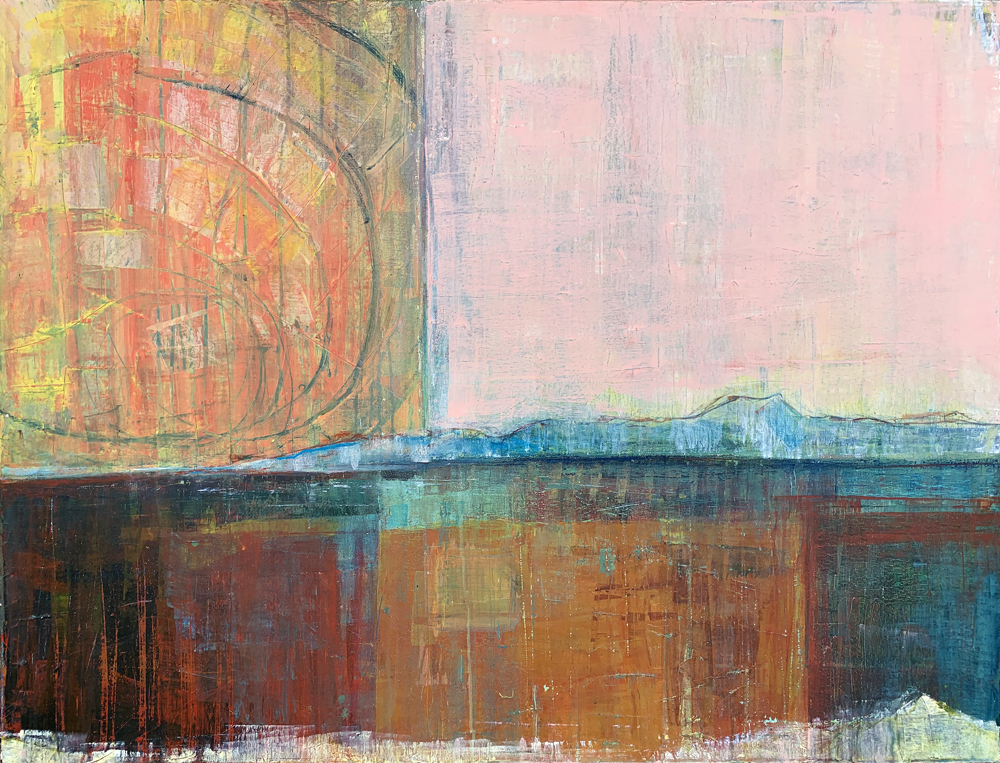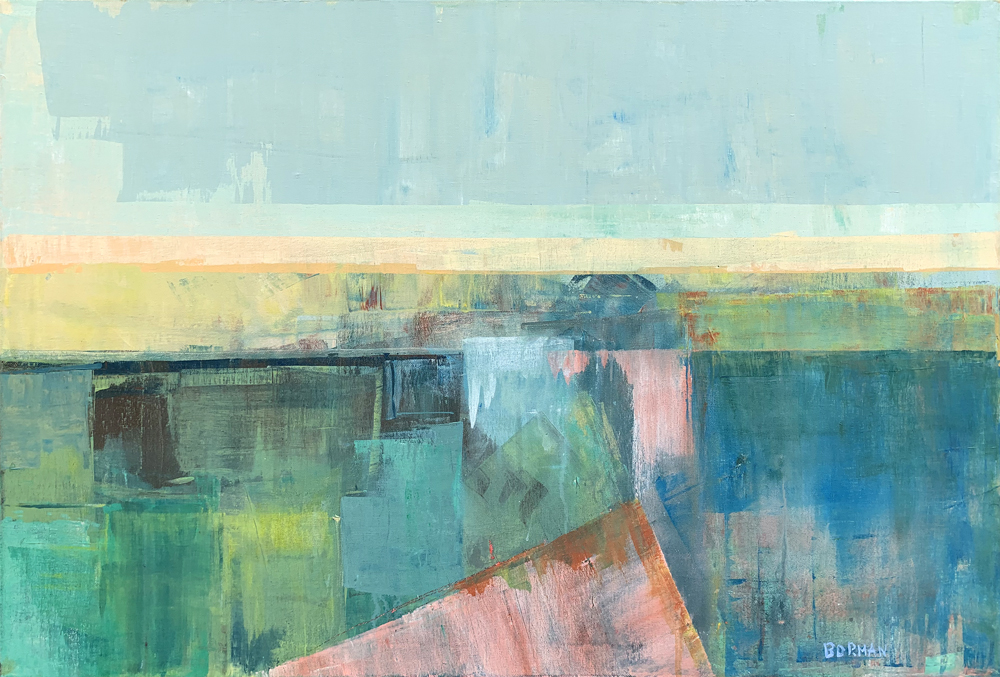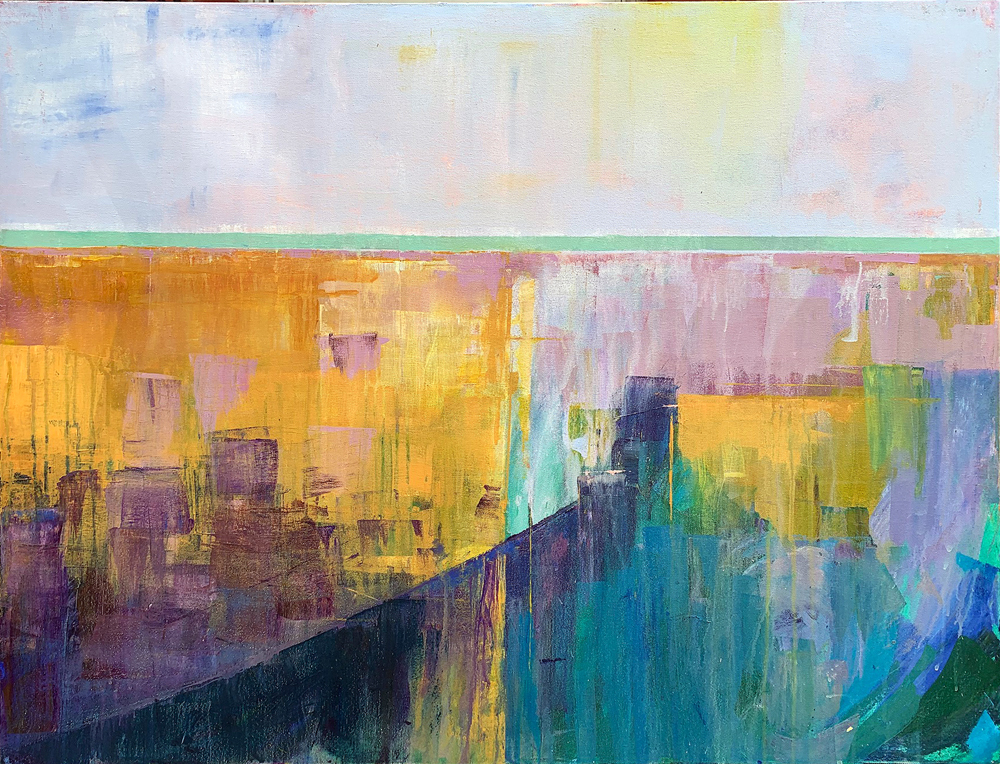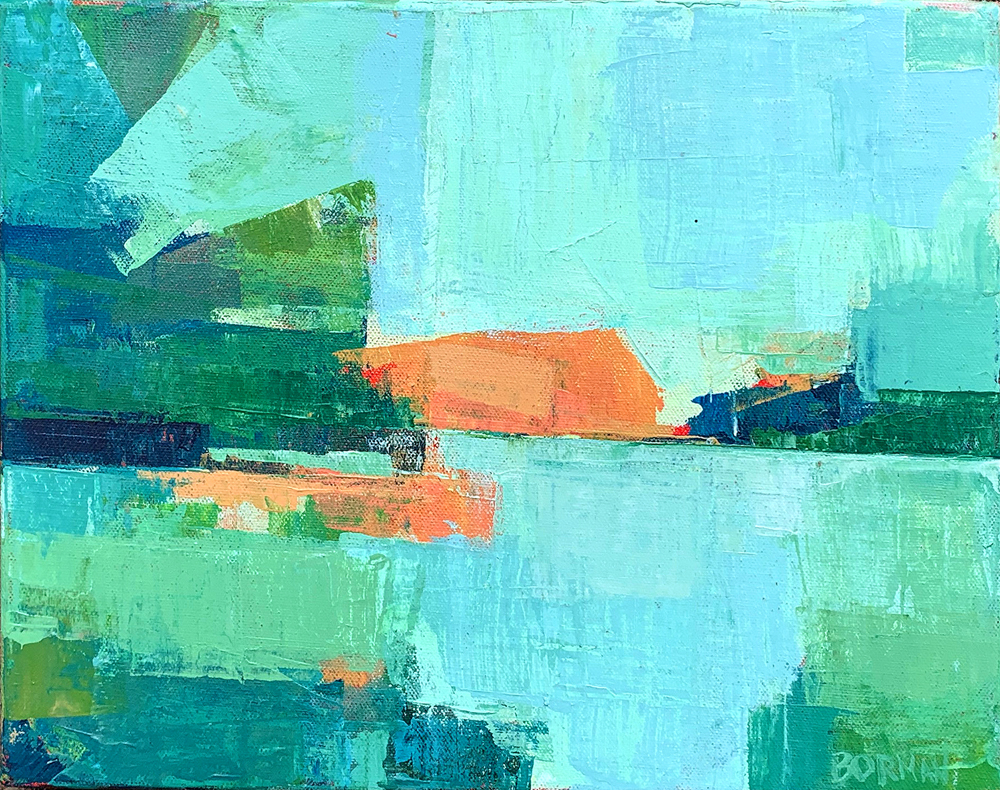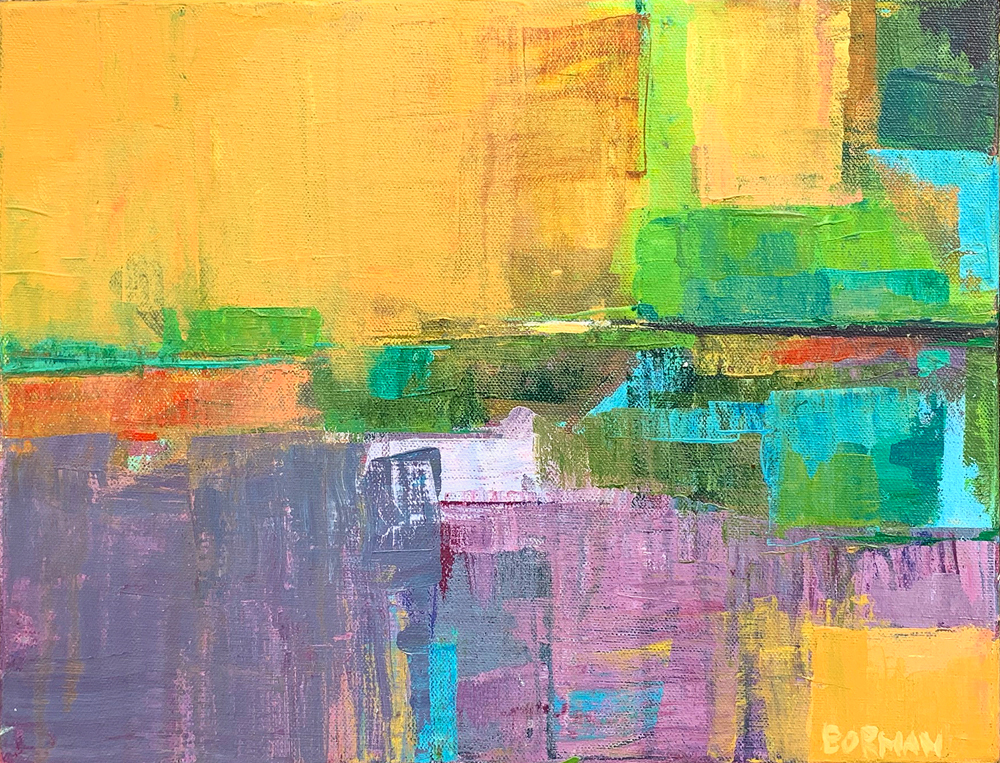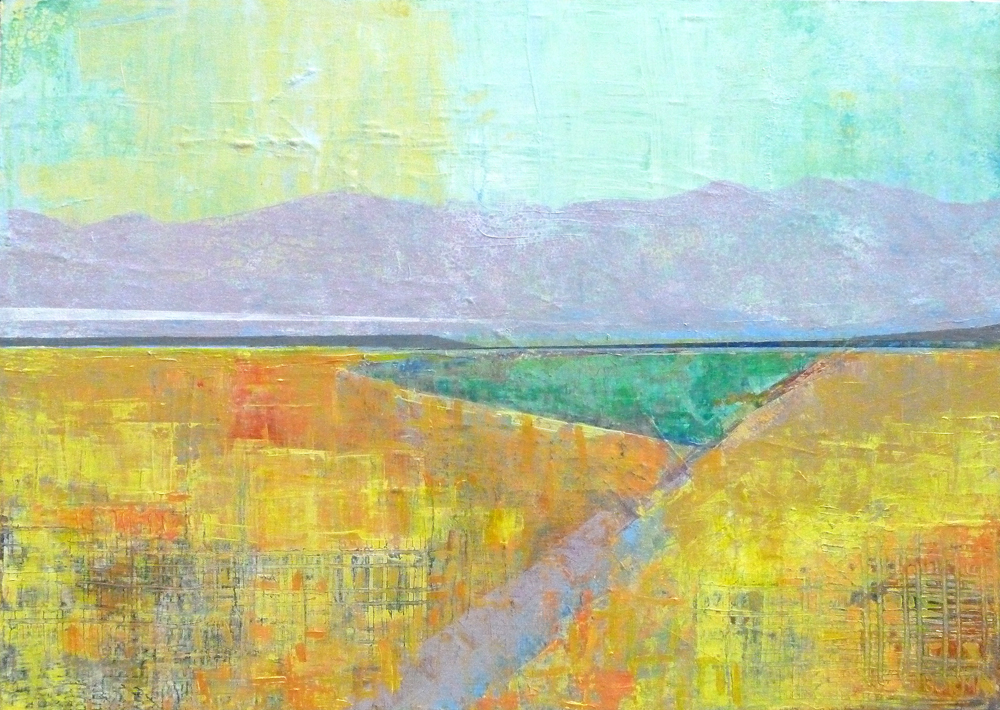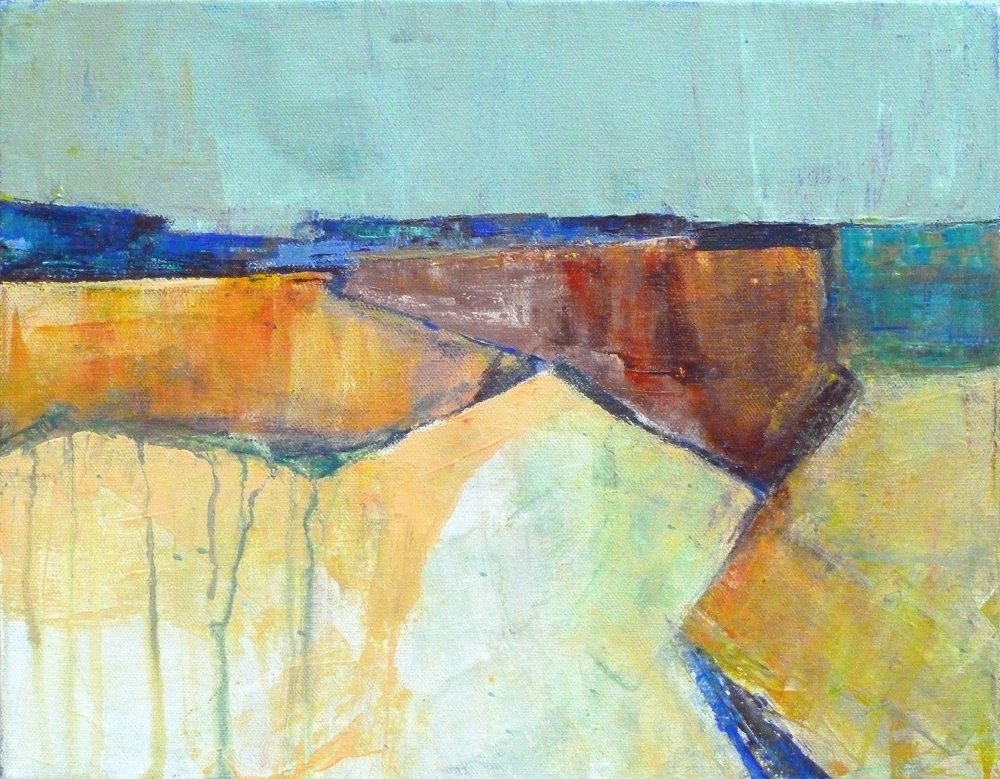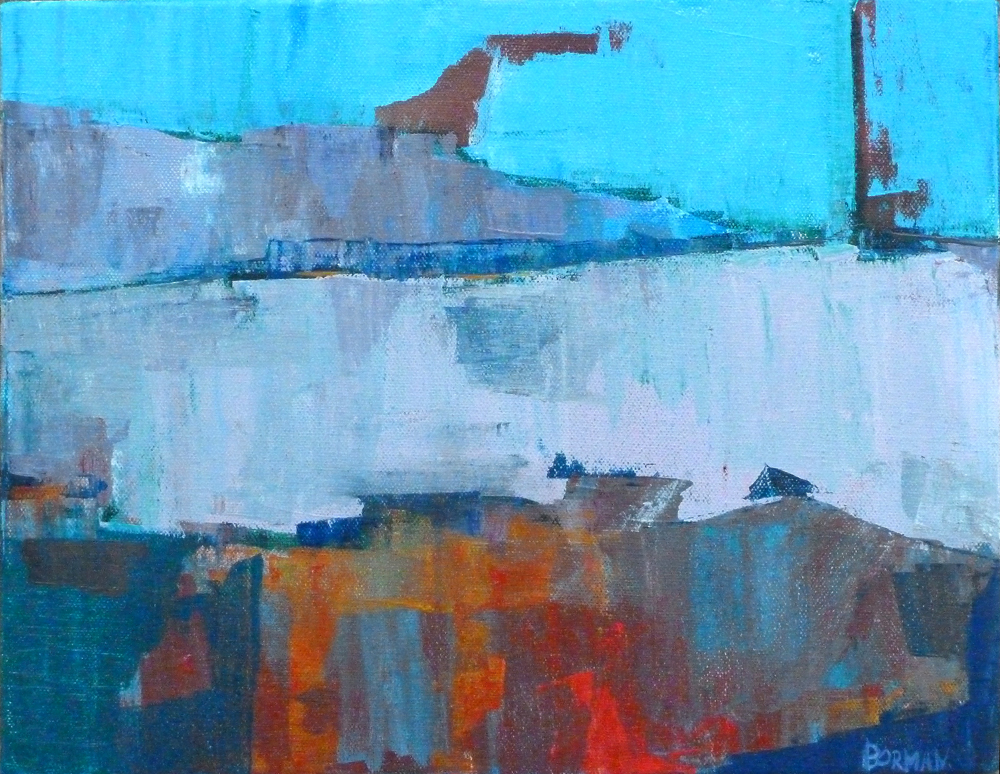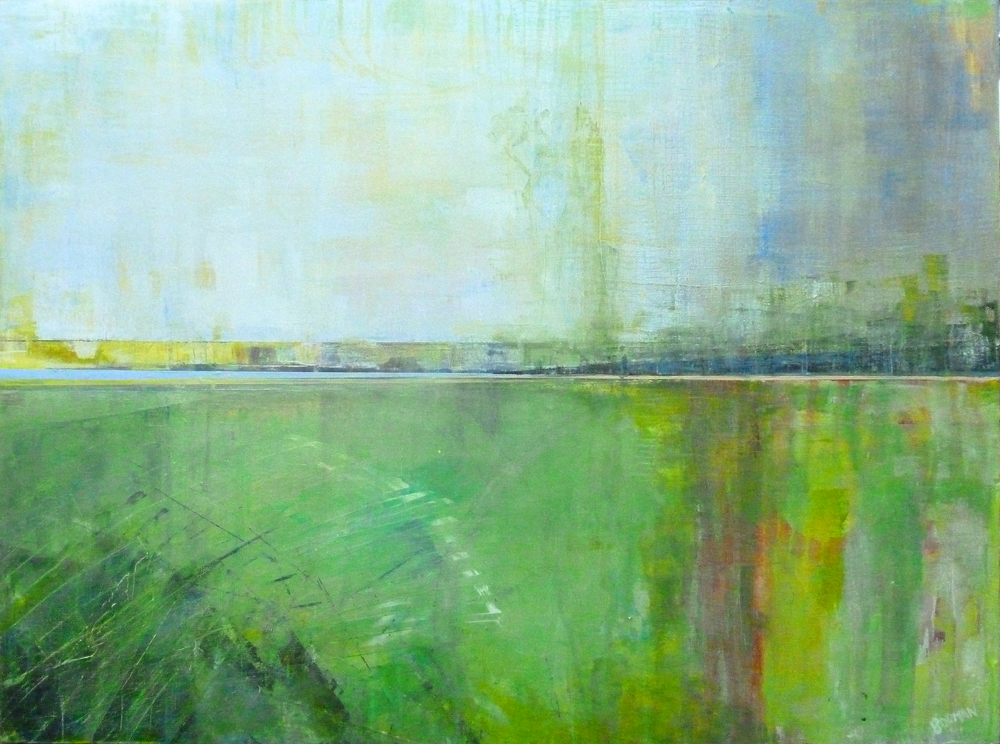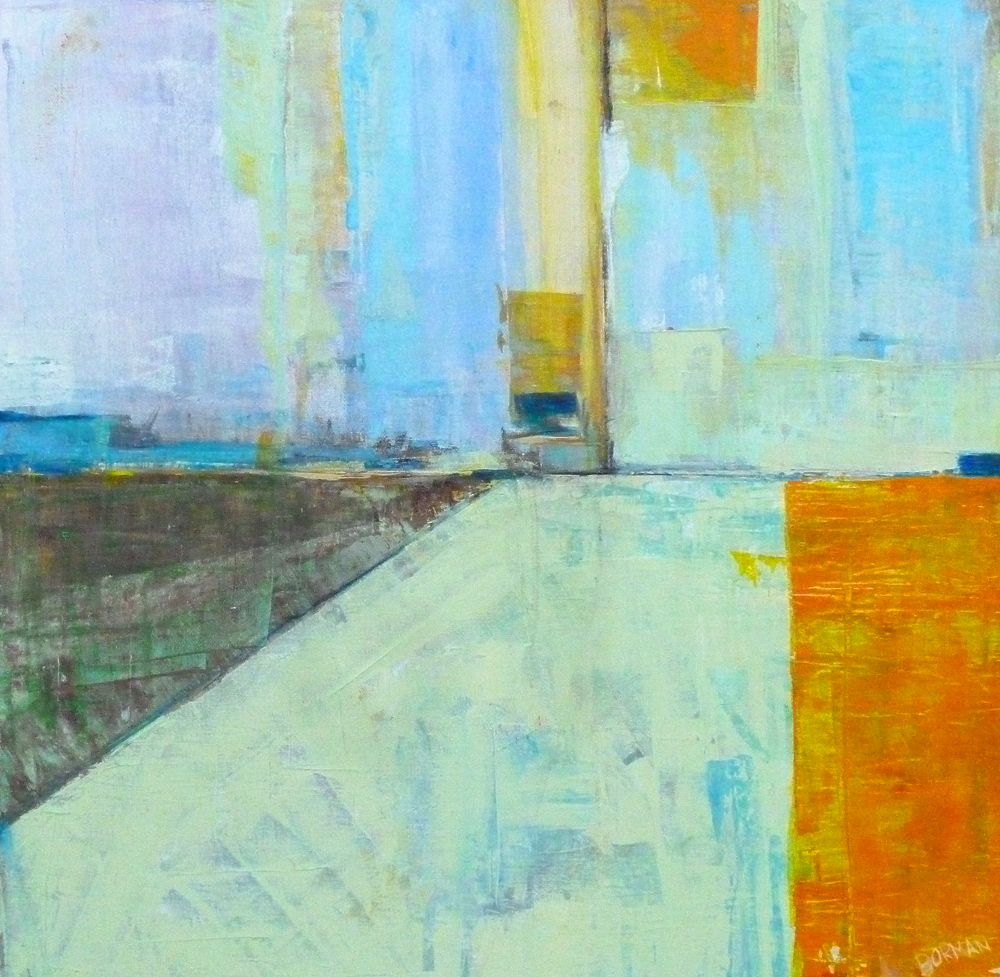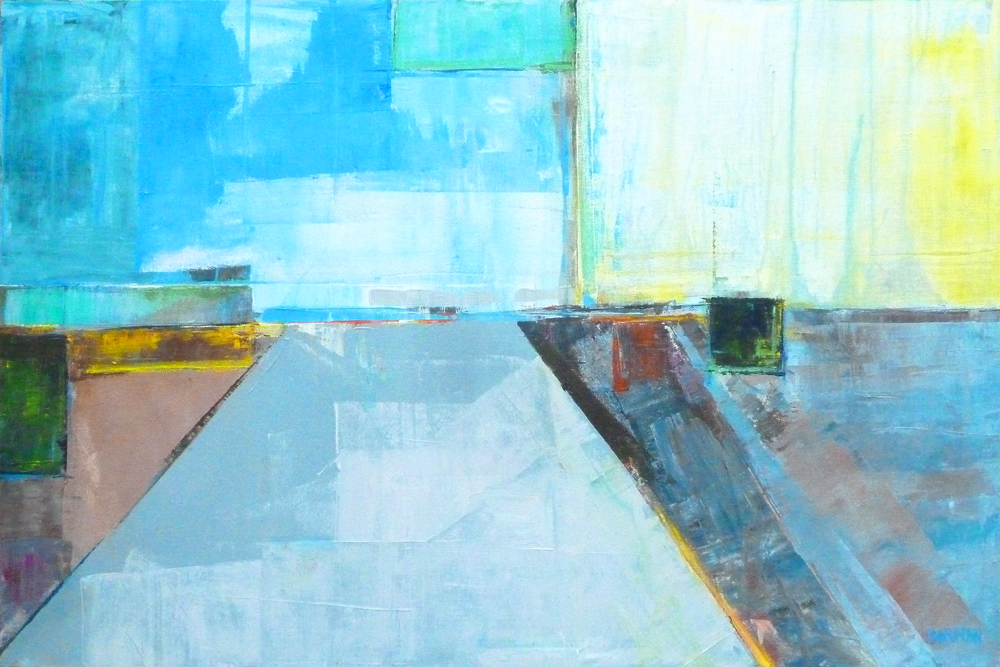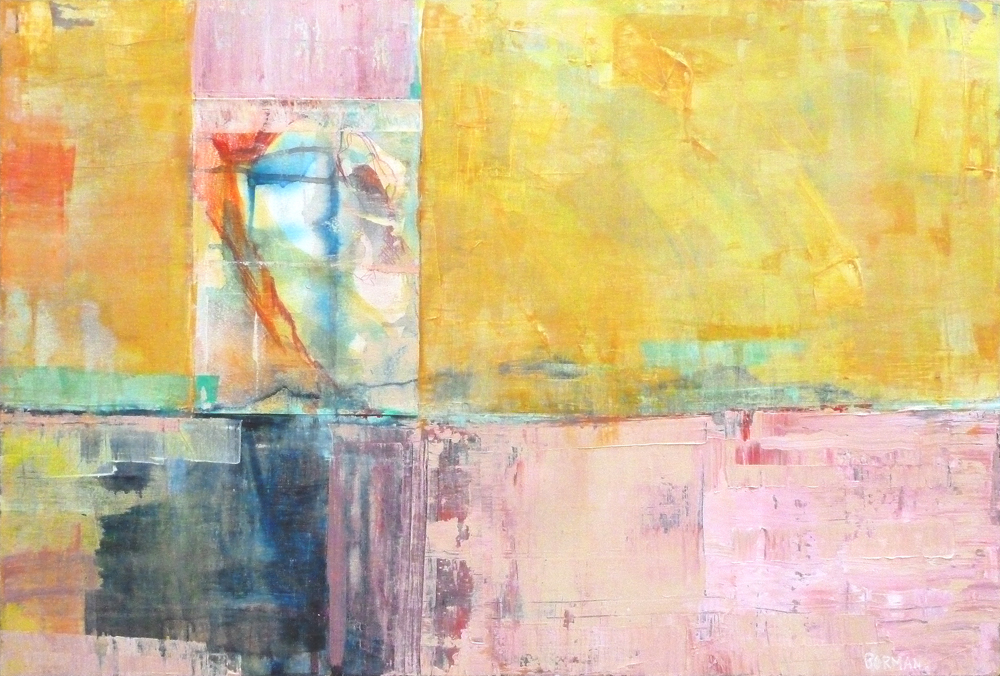30″ x 30″, acrylic on canvas
Wetlands
10″ x 10″, acrylic on canvas
Shoreline
36″ x 48″, acrylic on canvas
Your Brain on Art
I recently picked up Unthinkable by Helen Thomson at the local library. It is a book about unique brains. Each chapter explores the story of a patient whose brain is notably different than the “norm” for various reasons. My favorite Chapter, “Seeing Auras”, is about a gentleman who sees colors with people not in a psychic reading sort of way, but as an add on to things like body language, emotion cues, etc.
Thomson goes on to discuss a brief overview of synesthesia. Synesthesia is defined by Merriam Webster as: “a subjective sensation or image of a sense (as of color) other than the one (as of sound) being stimulated”. A synesthete can hear color or see colors with music. There is an overlap in sensory experience. Thomson explains that these sensory pathways in our brain already run close together, and it is believed that synesthesia is a result of “pathways of communication between sensory regions that don’t normally exist”. (Thomson, 80).
Thomson then suggests that we may all have aspects of synesthesia and can
strengthen or build these crossovers with use. Now to get to why I am writing about this on my blog: I think artists inherently build unique ways of seeing the world through the act of making art. A plein air painter will begin to notice colors in light that a non painter might not. A sculptor my feel the sensation of certain sounds or smells in the molding of clay or bending of metal. From personal experience, I know that I see shapes and colors in places I once did not. And many of my students have expressed similar sentiments.
Simply put, the practice of art is not just about developing the skills of mixing greens, using the right marks, or understanding perspective. The repetition and practice of art regularly is literally rewiring your brain and changing way you experience the world. This cannot be learned. You must grow it by making art regularly like building a muscle. Artists of all experience levels benefit from challenging themselves and being uncomfortable. It is only when we step out of our comfort zone that we create new connections, break mindless habits, and add complexity to our senses.
Helen Thomson, Unthinkable, Harper Collins, 2018
Plains
acrylic on canvas, 24″ x 35.5″, available
A Note on My Teaching Philosophy
I have been teaching art for over a decade. Most of my classes are designed by me and are geared to embrace a range of experience levels.
Being an artist takes WORK. But it is never too late to start. I believe one should start in a way that will be less intimidating. Don’t spend thousands on supplies and then be afraid to “waste them” on “bad paintings”. The hardest part of making art is not to learn the tools or techniques. The hardest part is breaking old habits and being fearless in trying new approaches.
As a teacher, my goal is to help the individual on their unique journey while providing general goals and lessons for everyone in the class to learn from and respond to. I hope you will consider taking a class with me at some point. I offer classes in painting (acrylic), abstraction, pastel, mixed media, landscape, drawing, and more. Click on the classes link above to see what’s coming! Feel free to contact me with any questions . I hope to make art with you soon.
Best Regards

Redfin Blog
I recently contributed a quote to Redfin’s latest blog post:
Opt for strong color combinations for the best effect
As an abstract landscape painter, I believe that simple but strong color combinations (such as complementary colors like orange and blue) create the best effect. – Beki Borman
You can see the full article here.
Waterways
acrylic on canvas, 30″ x 40″
available for sale
Golden Dawn
20″ x 20″
acrylic on canvas
Afterglow
30″ x 40″
acrylic on canvas
Thaw
24″ x 36″
acrylic on canvas
Rooftop Magic
30″ x 40″, acrylic on canvas
New Growth
11″ x 14″, acrylic on canvas
Wildflowers
11″ x 14″, acrylic on canvas
Fields and Fences
18″ x 24″, acrylic on canvas
Blue Thread
11″ x 14″, acrylic on canvas
Climbing, acrylic on canvas, 11″ x 14″
Green Space, acrylic on canvas, 30″ x 40″
SOLD
Highway
20″ x 30″
acrylic on canvas
Fading Light
24″ x 36″
acrylic on canvas
